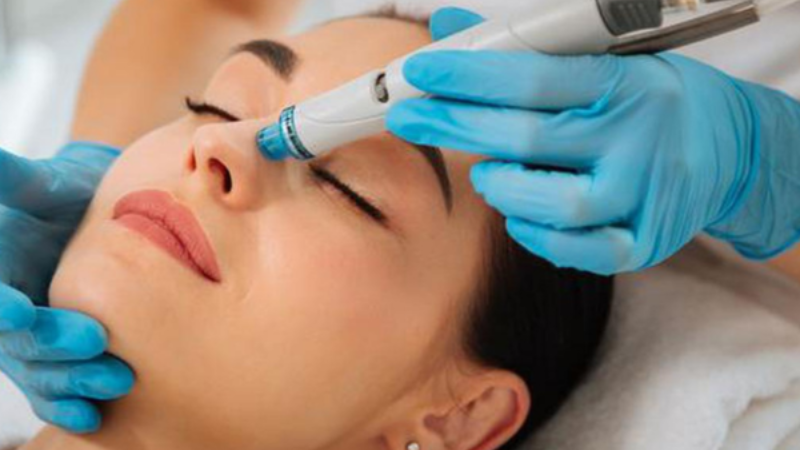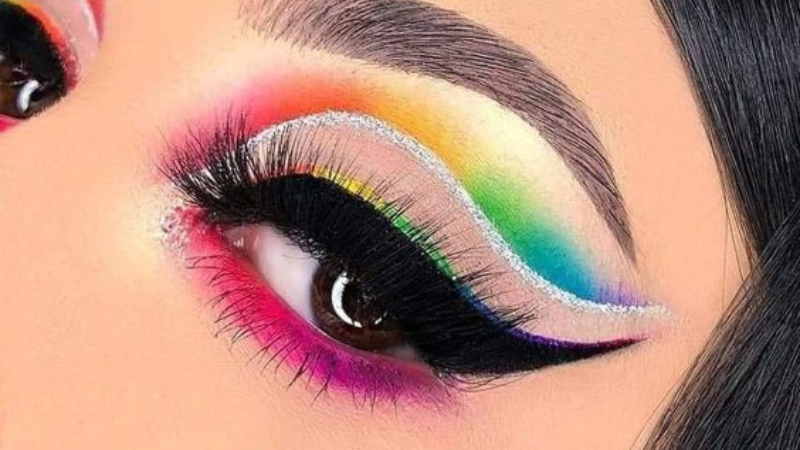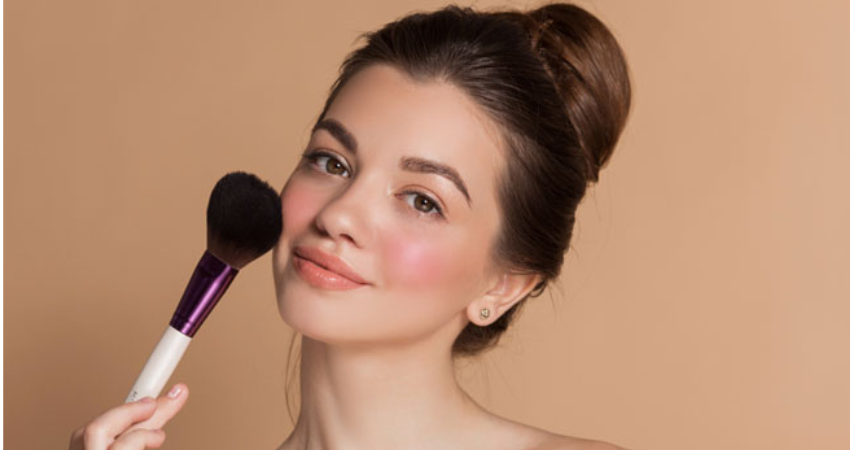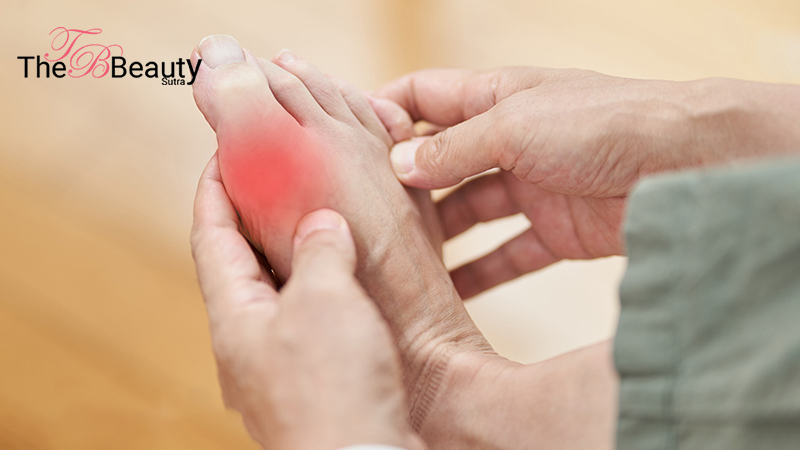The role of nutrition is multifaceted and essential for maintaining overall health and well-being. Nutrition encompasses the intake of nutrients from food and beverages that our bodies require for growth, repair, energy production, and various physiological functions.In the pursuit of healthy hair, glowing skin, and strong nails, the importance of skincare products and hair treatments often takes center stage.
However, what many overlook is the foundational role that nutrition plays in nurturing these vital aspects of our appearance. Just as a well-tended garden thrives with nourishment from the soil, our hair, skin, and nails flourish when provided with the right blend of essential nutrients. From protein to vitamins, minerals, and fatty acids, each component contributes uniquely to the health and vitality of these tissues. In this article, we’ll explore in detail the role of Nutrition in achieving Healthy Hair, Skin, and Nails. The key nutrients necessary for achieving luscious locks, radiant skin, and resilient nails, and how incorporating them into your diet can lead to noticeable improvements in your overall appearance and well-being.
Table of Contents
What is the role of nutrition in achieving healthy hair, skin, and nails is significant.
Nutrition is vital for supporting every aspect of human health, from providing energy and promoting growth to maintaining physiological functions, preventing disease, supporting mental well-being, optimizing athletic performance, and managing weight. Making informed dietary choices and adopting healthy eating habits are essential for achieving and maintaining optimal health and vitality throughout life.
Here’s a breakdown of how different nutrients contribute to their health and what is the role of nutrition in healthy diet:
Protein:

Hair, skin, and nails are primarily composed of a protein called keratin. Keratin provides structure and strength to these tissues. Consuming adequate protein is crucial for the growth and maintenance of hair, skin, and nails. Sources of protein include:
Vitamins:

Vitamin A: This vitamin is essential for skin cell growth and repair. It helps maintain the integrity of skin tissues and mucous membranes. Vitamin A also supports the production of sebum, an oily substance that moisturizes the scalp and skin. Food sources rich in vitamin A include sweet potatoes, carrots, spinach, kale, and liver.
Vitamin C: As a powerful antioxidant, vitamin C protects the skin from oxidative stress caused by free radicals. It is also required for collagen synthesis, a protein that provides structure and elasticity to the skin. Citrus fruits, strawberries, kiwi, bell peppers, and broccoli are excellent sources of vitamin C.
Vitamin E: Vitamin E protects skin cells from damage caused by UV radiation and environmental pollutants. It also helps maintain skin moisture and elasticity. Nuts, seeds, vegetable oils, spinach, and avocados are good sources of vitamin E.
Vitamin D: While primarily known for its role in bone health, vitamin D also plays a role in skin cell growth, repair, and metabolism. It helps regulate the immune system and may have anti-inflammatory effects. Vitamin D can be obtained from sunlight exposure, fortified dairy products, fatty fish like salmon and mackerel, and supplements.
Vitamin B complex: B vitamins play various roles in maintaining healthy hair, skin, and nails. Biotin (vitamin B7) is particularly important for the synthesis of keratin, promoting hair growth, and preventing brittleness. Sources of B vitamins include whole grains, eggs, meat, poultry, fish, dairy products, nuts, and leafy greens.
Minerals:
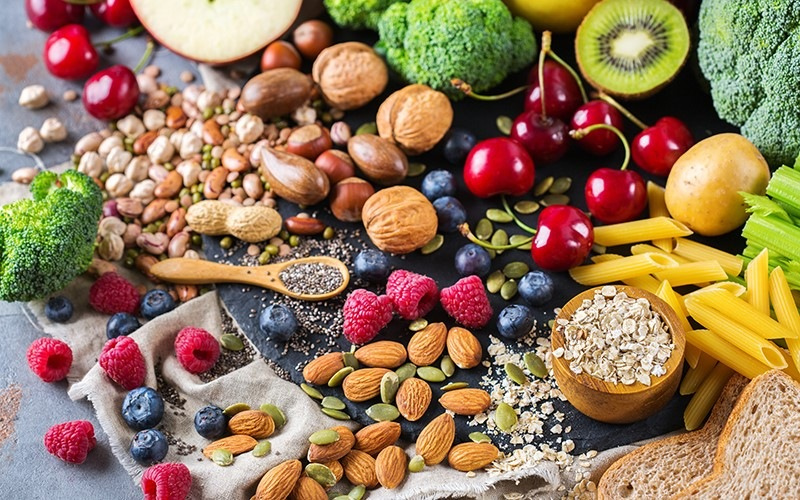
Iron: Iron is essential for transporting oxygen to cells, including those in the scalp, hair follicles, and skin. Iron deficiency can lead to hair loss and dull, pale skin. Good dietary sources of iron include red meat, poultry, fish, lentils, beans, tofu, fortified cereals, and dark leafy greens.
Zinc: Zinc is involved in numerous enzymatic reactions in the body, including those related to skin health and wound healing. It also supports immune function and may have antioxidant properties. Oysters, beef, poultry, nuts, seeds, whole grains, and dairy products are rich sources of zinc.
Selenium: Selenium is an antioxidant mineral that helps protect the skin from damage caused by UV radiation and oxidative stress. It also supports thyroid function, which is important for hair growth and metabolism. Brazil nuts, seafood, organ meats, whole grains, and dairy products contain selenium.
Silica: Silica is a trace mineral that plays a role in collagen synthesis and connective tissue formation. It may promote hair and nail growth and strengthen hair strands. Dietary sources of silica include whole grains, oats, barley, bananas, leafy greens, and cucumbers.
Omega-3 Fatty Acids:
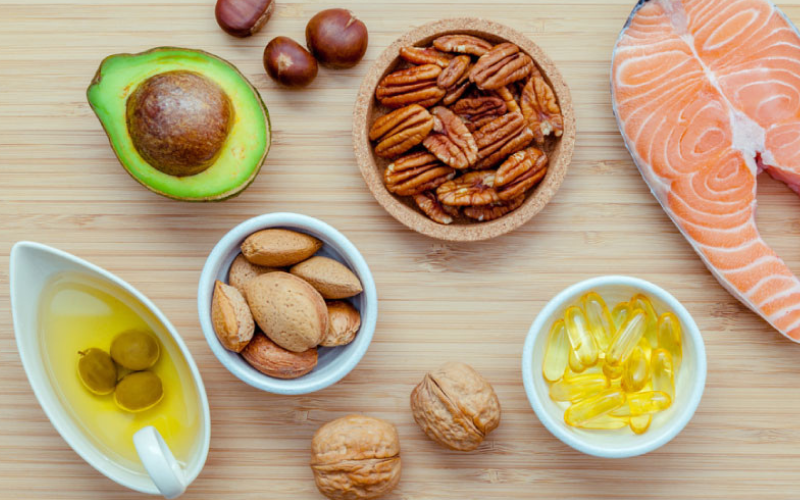
Omega-3 fatty acids are essential fats that the body cannot produce on its own. They are crucial for maintaining skin health, reducing inflammation, and supporting the integrity of cell membranes. Fatty fish like salmon, mackerel, and sardines are rich sources of omega-3s. Plant-based sources include flaxseeds, chia seeds, hemp seeds, walnuts, and algae oil.
Water:

Hydration is essential for maintaining skin moisture and elasticity. Water helps flush out toxins from the body and supports nutrient transport to cells. Dehydration can lead to dry, dull skin, brittle nails, and hair breakage. Aim to drink plenty of water throughout the day and consume hydrating foods like fruits and vegetables.
Conclusion:
In conclusion, a well-balanced diet rich in protein, vitamins, minerals, omega-3 fatty acids, and water is essential for achieving healthy hair, skin, and nails. It’s important to consume a variety of nutrient-dense foods to ensure adequate intake of all essential nutrients. Additionally, maintaining a healthy lifestyle, managing stress, getting enough sleep, and protecting the skin from sun damage are also important factors in overall skin and hair health. If you have specific concerns about your hair, skin, or nails, consult with a healthcare professional or a registered dietitian for personalized advice and recommendations.


